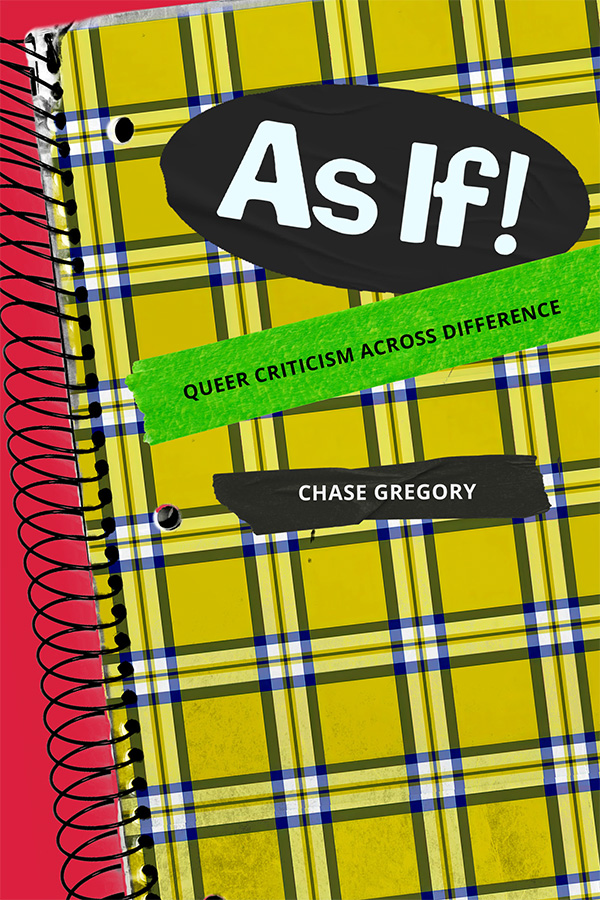As if!
Queer Criticism Across Difference
(Theory Q, Duke University Press, 2025)
Buy As if! here
As if! Queer Criticism Across Difference explores the stylistically strategic, often campy, and productively fraught cross-identifications of early queer literary criticism. Instead of maintaining faith in a stable authorial identity from which one writes, as if! criticism highlights an author’s personal struggle to read, write, and identify with and across categories of race, sexuality, and gender. While this mode of writing has since fallen out of favor, this book returns to these early experiments in cross-identification, theorizing modes of writing that productively challenge fixed ideas of identity and knowledge production. Gregory reads the early work of four literary critics: Robert Reid-Pharr, a gay Black man identifying as part of a community of Black lesbian friends and critics; Deborah McDowell, a straight Black feminist writing about lesbian desire; Barbara Johnson, a white lesbian writing about and through Black-authored texts; and Eve Sedgwick, a straight white woman writing about gay men. Using these four critics as case studies of a larger trend within AIDS-era queer literary criticism, As if! not only asks why these authors are compelled to write across identity categories, but also what might be gained from their staged scenes of cross-identification—especially when these cross-identifications are spectacularly stopped short, embarrassingly interrupted, or otherwise made problematic.
Tracking patterns of attempted relation met by impasse, As if! shows how writers who employ as if! criticism perform the breakdown of the social relation, especially within those fields influenced by queer theory, deconstructionist feminist theory, and black feminist theory. Ultimately, Gregory advocates for as if! criticism as a politically useful blueprint for contemporary cultural critics, one which productively highlights the difficult relationship between identity and academic authorship. By staging these botched scenes of cross-identification, early queer literary critics convey both the impossibility of identification, and the political necessity of attempting that impossibility.
